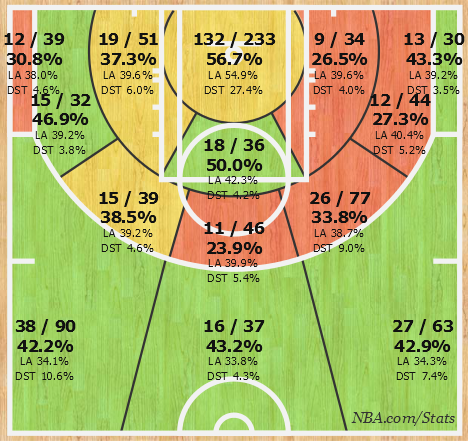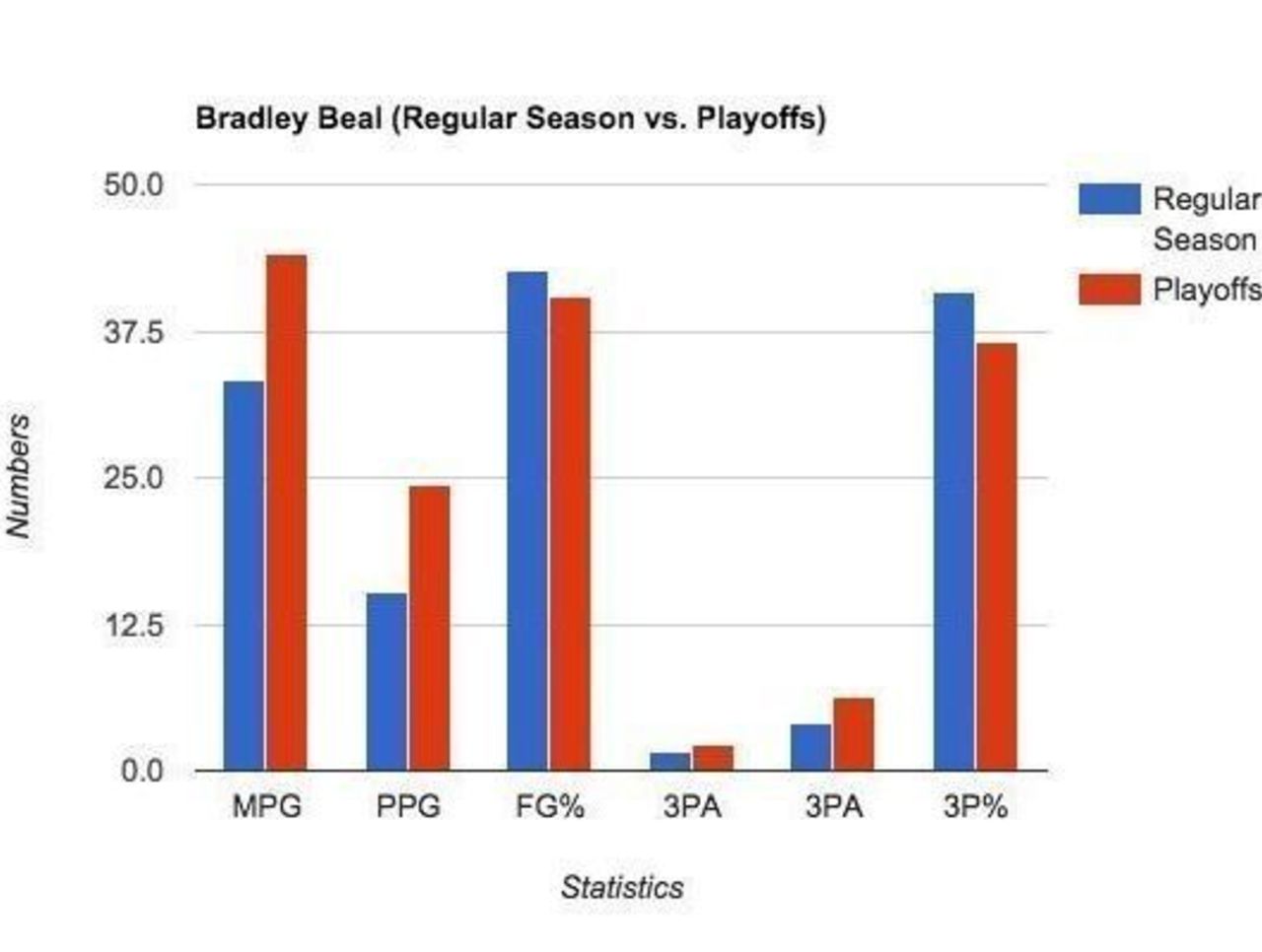Is this the year Bradley Beal finally breaks out?
Welcome to theScore's preview of the 2015-16 NBA season. Visit our season preview hub for comprehensive coverage of all 30 teams.
Bradley Beal has been on the precipice of greatness the past few seasons, but has struggled to move himself past the label of simply being "really good" for his position.
He's revered for being one-half of arguably the greatest backcourt in the NBA (along with John Wall) for the Washington Wizards, although a great deal of credit goes to the former Kentucky Wildcat and his development into an elite floor general for his squad. Beal has yet to reach that level of notoriety at the two-spot, which can largely be attested to his shaky history of staying healthy long enough to do so.
Since entering the league as the third overall pick in the 2012 NBA Draft, Beal has sat out a combined 54 games due to a catalogue of injuries, including a fractured wrist and stress reaction in his right fibula.
| Year | GP | MPG | PPG | FG% | 3P% | RPG | APG | PER | USG% |
|---|---|---|---|---|---|---|---|---|---|
| 2012-13 | 56 | 31.2 | 13.9 | 41 | 38.6 | 3.8 | 2.4 | 13.6 | 22.2 |
| 2013-14 | 73 | 34.7 | 17.1 | 41.9 | 40.2 | 3.7 | 3.3 | 14.3 | 24.3 |
| 2014-15 | 63 | 33.4 | 15.3 | 42.7 | 40.9 | 3.8 | 3.1 | 14 | 22.5 |
While injuries undoubtedly play a key role in the 22-year-old's substandard growth, Beal's decision-making on the hardwood isn't helping his cause, relying on shooting long-range 2-pointers for a majority of his offense. He attempted five mid-range jumpers per game last season, converting a little over one-third of his attempts at 33.9 percent - a number only Andrew Wiggins of the Minnesota Timberwolves failed to surpass.

Settling on the perimeter as a poor shooter who struggles to hit from 15-to-19 feet out is a bad habit Beal needs to kick right away. For whatever reason, Beal's numbers go way up when he steps a few feet back to the 3-point line, with his percentages from behind the arc (40 percent) being on par with what he hits from the field as a whole (41.9 percent) for his career.
The Wizards ranked ninth in 3-point percentage (36 percent), but just 27th in 3-point attempts (16.8). Considering Beal's proficiency from that distance, it almost seems foolish on head coach Randy Wittman's part to not establish a game plan which allows him to light up teams more often.
Per Wizards, Bradley Beal and LeBron James are the only players in NBA history to make 300 career 3-pointers before their 22nd birthday.
— Jorge Castillo (@jorgeccastillo) April 10, 2015
In a July interview with SlamOnline.com's Yaron Weitzman, Beal revealed how lenient Wittman is with shot selection, giving him the green light to take as many 15-footers as he likes.
"Not really, nah," Beal said when asked if the team has ever told him to stop taking mid-range shots. "They just let me play my game. Coach Wittman loves those shots. He wants you to shoot everything possible whenever you have the opportunity to."
Fans got a glimpse of how a more free-flowing offense would benefit Beal during the postseason when the Florida alumnus boosted his numbers across the board, leading the Wizards in scoring before his team got the boot in the second round.

While his percentages dipped ever so slightly, Beal's offensive output made positive strides as his teammates relied on him more to put points on the scoreboard. Defenders still got their fill of mid-range attempts (5.9 per game at 37.3 percent) from the 6-foot-5 guard, but even so, it was apparent that Washington was willing to live or die with Beal as their go-to guy in that regard.
The departure of Paul Pierce to the Los Angeles Clippers should lead to a quicker, more up-tempo flow from Wittman's crew, which could mean big things for Beal's immediate future. The NBA's 19th-ranked offense will look to move the ball up the floor at a clip better than the 18th-place finish the team had (93.7 possessions per 48 minutes) a year ago.
This should be music to Beal's ears, as he'll benefit the most once the Wizards turn away from half-court sets and run teams out of the building in small-ball lineups. Wall continues to act as the facilitator (10 assists per game), while Beal gets more of the spotlight.
Shooting guards Jimmy Butler (Chicago Bulls), Klay Thompson (Golden State Warriors), and James Harden (Houston Rockets) all earned their first All-Star nods in their respective fourth seasons, which is what Beal is about to embark on. His strongest year to date would go a long way towards getting the Wizards to (at least) the Eastern Conference finals. But for that to happen, Beal will need to continue diversifying his game, and become that next-level star everyone expects him to be.